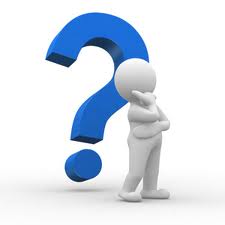What Is A Patent?
 How good are your ideas and inventions? Can someone else do the same thing? The principle behind a patent is to protect your rights to make, use or sell what you have created or invented. Without that protection or patent, your ideas and inventions could be copied by anyone. The formal definition of a patent is a form of intellectual property that confers on the owner the exclusive rights to manufacture, sell or use that property for a specified period of time. If your ideas and inventions are good enough and unique, then you can be granted a patent to protect them.
How good are your ideas and inventions? Can someone else do the same thing? The principle behind a patent is to protect your rights to make, use or sell what you have created or invented. Without that protection or patent, your ideas and inventions could be copied by anyone. The formal definition of a patent is a form of intellectual property that confers on the owner the exclusive rights to manufacture, sell or use that property for a specified period of time. If your ideas and inventions are good enough and unique, then you can be granted a patent to protect them.
A Patent is Real Property
What is the intellectual property included in a patent and how do you know if you have any? One way to think about intellectual property is to consider what is meant by “real property”. In the case of physical assets or real estate, there is something tangible (you and I can see it, touch it or otherwise know that it exists) that someone owns. Property rights and the benefits of ownership are well-known and established through laws and courts. Your sole right to ownership and the ability to use that property is protected. You can’t take or use someone else’s physical property or real estate without their knowledge or without compensating them in some way.
The same principle applies to intellectual property. Your ideas and inventions can be thought of as property that you own and have the rights to use. It’s intellectual property as distinguished from physical property only because we can’t see it or touch it. Nevertheless, intellectual property does exist. Along the same lines as physical property then, once it’s protected you can’t take or use someone else’s intellectual property without their knowledge or without compensating them in some way. Patents are designed to identify and protect your intellectual property.
Patents Require Substantial Documentation
Patents, because they are used as a form of legal protection, require detail and supporting documentation. When you create a new product or invent a new way to do something, in order for a patent to be granted, you have to show what you have done. In order for the government authorities – who grant or award patents – to evaluate your case, there must be enough evidence to show that your idea or invention qualifies as intellectual property. Without the details and a description of design elements or how the invention works, patents are typically not awarded.
Patents Make Your Information Public
How comfortable would you be about publicly sharing all of the details about your new idea? Most of us would not want to provide that information without some guarantee that others would not be able to use the information. So, patents basically grant to the inventor or creator the right to “exclude others” from using or the same thing you have. Patents do not include rights to use the idea or invention, but rather are intended to protect your rights of ownership. Like any other property rights, patents may be sold, licensed, given away, transferred or simply abandoned – just like any physical piece of property. The patent grants the inventor these limited property rights for a specific term, usually 20 years from the date of the patent application or submission.
Thank you for the article. What happen if someone is filing a provisional patent for the same idea in about the same period? (at least theoretical its possible). Lets say I fill the application, I share the idea and someone is filling a provisional (or non-provisional ) patent.
Thank you.